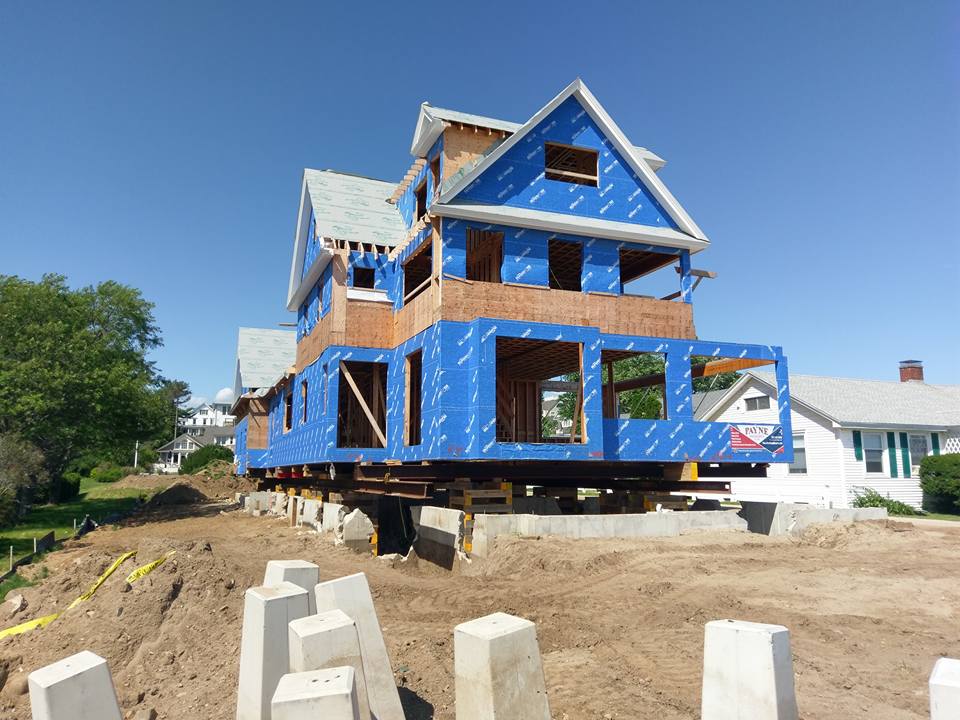
What You Can Save By Investing In House Lifting In Massachusetts
When it comes to house lifting and house moving, the first “loss” that most people think of regards the house itself. After all, lifting or moving a house is a big deal, so it’s pretty obvious that the house is being moved in order to protect it. It’s all about protecting the house itself, right?
Since a house is the biggest investment that most people will ever make, the answer is pretty much “yes, the house itself is the primary thing being protected.” But the house is far from the only possession being protected when it’s moved to be above the danger of floodwaters. When you invest in house lifting or moving, here are a few of the other things you’re saving from being lost.
Save Your Stuff
We use the word stuff because there isn’t a better word to use! We’re talking about anything that’s in your basement or on the first floor of the house, the stuff in your life that you’ve purchased over the years and are perfectly happy with. This includes furniture, rugs, plants, electronics, lamps, books, and anything else that could be below base flood elevation (BFE).
When you stop to think about all of the stuff you have, do you really want to replace all of it? Even if it’s insured, do you want to have to replace absolutely everything that gets waterlogged? Unless you want a hard reset on nearly everything you own, it’s best to contact a house lifting service or house movers.
Save Your Really Personal Stuff
Even if you don’t mind losing a couch in a flood, we know there are some things in your life that you don’t want to lose. Old family photographs come to mind, even if you have them backed up digitally. And if they are backed up digitally, you might lose the computer or the hard drive in the flood.
There are also antiques that you might have inherited, whether it’s a small tchotchke or a large armoire. You probably don’t want to lose any original art, or nick-nacks that you’ve collected from trips over the years. And if you have kids, you certainly don’t want to lose all of those papers and projects of theirs that you’ve been saving. It’s not just the things that have monetary value that people are protecting when they have house lifting performed, but the stuff that is, literally, irreplaceable.
Many people think, “when a flood comes, I’ll just pack up all of the important stuff and leave the rest.” What they’re forgetting is that evacuation orders can come suddenly as the weather changes, and they might be forced to leave so quickly that they’ll never be able to get everything out of the house in time. On top of that, evacuating personal items in a car isn’t going to do any good if the car itself gets flooded!
Wouldn’t it just be better to get the house out of the way of the water instead?
Save Your Paperwork
Paperwork is one thing that most of us hate but just have to put up with. And even if we’d rather it just go away, it’s also one of the worst things to lose in a flood.
We’re not talking about last month’s power bill, or even your latest bank statement; those can be replaced easily or found online. But there are those important pieces of information that sit in filing cabinets for years, completely forgotten, until they’re suddenly needed. This includes medical reports (that the hospital just can’t seem to find), legal papers (if you have someone’s power of attorney), or deeds to homes and vehicles (because you never got around to getting a safe deposit box). You might also lose passports, marriage licenses, social security cards, or birth certificates in a flood. Do you need all of these now? Maybe not, but replacing them when you do need them is going to lead to a high level of frustration.
And speaking of frustration…
Save Yourself Frustration
Aside from the problem of replacing everything that’s in the house, you also have to think about the frustrations that come with getting all of your stuff replaced and repaired once the floodwaters have receded. Working with insurance companies can be an incredibly frustrating experience, especially when they have thousands of claims coming in at the same time…like, say, during a flood. You’ll have to live in a hotel until the house is prepared, which might be fun for about three days before it gets old (you might be there for months). You’ll also have to replace everything that was destroyed in the flood, which will end up taking up dozens of hours as you replace your vacuum, Tupperware, and plunger. Is that how you want to spend your next two months of weekends?
Our course, you’re going to be frustrated with yourself and what you failed to save from the house before it flooded. There will be tears as you survey the devastation, of your once-nice possessions that are now stained, warped, and water-damaged.
Save Your Health
Unfortunately, floods often leave behind black mold. The mold spores either get picked up with the water and delivered into the home, or they blow in on the wind and find a moist place to live. Mold eats just about anything made of cellulose, which includes the house’s frame, carpet, furniture, and the paper backing of drywall.
When a house is renovated after a flood, contractors do everything they can do ensure that any black mold is removed or prevented. Unfortunately, this doesn’t always work since it can hide in dark areas and pop back up in the future.
Black mold can cause a host of mental and physical problems in those who are allergic to it, ranging from depression to headaches to breathing problems. It can also make a house nearly impossible to sell. The threat of black mold can be reduced simply by having a house raised or moving it out of the flood plain.
Are You Ready To Save Your House…And So Much More?
If so, Payne Construction Services is ready to make it happen. Contact us when you want to save so much more than just your house.

